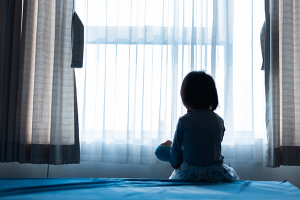 At the University of North Carolina at Chapel Hill, the safety and welfare of every person on campus is a top priority. When it comes to the safety of minors on campus for programs and activities – the responsibility magnifies.
At the University of North Carolina at Chapel Hill, the safety and welfare of every person on campus is a top priority. When it comes to the safety of minors on campus for programs and activities – the responsibility magnifies.
April is recognized as Child Abuse Prevention Month, shedding light on a significant issue affecting countless children across the United States.
In 2021, the National Children’s Alliance reported over 600,000 children in the U.S. were victims of abuse, including physical abuse, sexual abuse and emotional abuse, and neglect. Many instances of child abuse go unreported, emphasizing the importance of awareness.
UNC Chapel-Hill Protection of Minors on Campus is amplifying its efforts to raise awareness about child abuse and the responsibility of mandatory reporting.
Mandatory Reporting
“The state of North Carolina mandates that all adults 18 and above are mandatory reporters of suspected child abuse,” explains Protection of Minors on Campus Director Starr Barbaro Sanders. When a person becomes aware, or has reasonable ground to believe, that a minor has been subjected to or is currently a victim of an offense, it’s mandatory to report the incident to the appropriate authorities or law enforcement agency.
In North Carolina, any individual, including civilians and professionals, who knowingly or wantonly fails to report child abuse can be charged with a class 1 misdemeanor. North Carolina is the only state that requires mandatory reporting of additional crimes against children, even those committed by peers.
“Every unreported incident prolongs the risks to minors,” says Sanders. “Mandatory reporting not only holds individuals accountable for their actions but also ensures our campus is safe.”
Any incidents on the University campus should be reported to both UNC Police and Sander’s office. Resources provided by Protection of Minors on Campus offers guidance on incidents requiring reporting and contact information for Campus Safety authorities.
Prevention on Campus and Resources for the Community
The University hosts close to 140,000 minors on campus every year. “We have more minors on campus every year combined than we do students and personnel,” says Sanders. “Our goal is to keep kids safe while they’re on campus. It’s at the core of everything we do.”
Protection of Minors on Campus plays a crucial role within the University system, ensuring a safe space for kids who visit the University or take part in on-campus activities. The office has established standards, requirements and procedures to protect anyone under 18 from harm by parents, guardians, caregivers or program staff, whether they’re affiliated with the University or not.
University-affiliated and unaffiliated programs must get approval from Sanders before conducting any activities on campus. The process involves a series of steps, including background checks, staff training and compliance with safety standards such as those established by the American Camp Association. The office provides free training resources including online modules covering topics like peer-to-peer abuse and in-person sessions tailored to specific needs such as how to recognize a predator.
“The Indicators of Child Abuse or Neglect Training” course is available, at no cost, for anyone internal or external to the University. The course is intended to educate individuals on recognizing signs of child abuse or neglect and understanding appropriate actions to take if abuse or neglect is suspected. The training is mandatory for anyone who interacts with minors on the University campus, its facilities, properties or online programs.
“We want the community to know we offer training on how to identify abuse and to be aware of their responsibility to protect minors as mandatory reporters,” explains Sanders, “because every child deserves a chance to thrive in a secure and supportive environment.”
